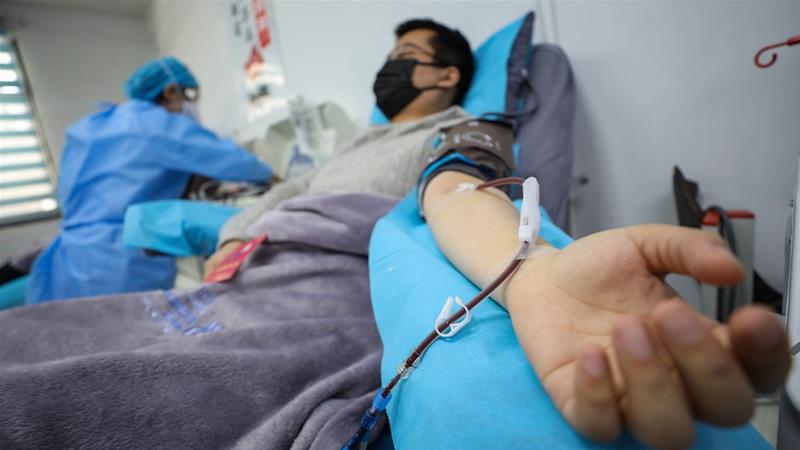Trials of a coronavirus vaccine could begin within the next month, the Government’s health agency has said, as it prepares to start evaluating a drug developed by Oxford University.
Scientists at Oxford University, led by Prof Sarah Gilbert, are planning a safety trial on humans of what is expected to be the UK’s first coronavirus vaccine next month. Provided that it goes smoothly, they will move directly into a larger trial to assess how effective the vaccine is at protecting against the infection.
The same vaccine will start animal trials next week at the Public Health England (PHE) laboratory at Porton Down near Salisbury. Normally, animal work must be completed before human trials can start, but because similar vaccines have worked safely in trials for other diseases, the work has been accelerated.
“We are conscious that a vaccine is needed as soon as possible and certainly by June–July, when we expect a big peak in mortality,” said Prof Adrian Hill, director of the Jenner Institute at Oxford.
“This is not a normal situation. We will follow all standard trial safety requirements, but as soon as we have a vaccine that’s working, we anticipate there will be an accelerated pathway to get it deployed to save lives. The more vaccine we can provide sooner, the better.”
This month, Anthony Fauci, director of the US National Institute of Allergy and Infectious Diseases and a member of Donald Trump’s taskforce, said a vaccine was 12 to 18 months away – an expectation echoed by the UK chief scientific adviser Sir Patrick Vallance – but Hill said the Oxford team and others were “aiming for much earlier”.
Covid-19 was confirmed to have claimed a further 33 lives on Thursday, bringing the UK death toll to 137. The latest victims were aged between 47 and 96, and all had underlying health conditions. Confirmed cases stood at 3,269.
Boris Johnson claimed that the next 12 weeks could “turn the tide of this disease”, telling the daily Downing Street press conference on Thursday he was “absolutely confident that we can send coronavirus packing in this country, but only if we all take the steps we have outlined”.
A British patient has entered a randomised trial for coronavirus for the first time, the prime minister said. The patient, who had Covid-19, is being tested to check whether they have immunity.
He added that the government was in negotiations to buy an antibody test “as simple as a pregnancy test, which can tell whether you have had the disease. It’s early days, but if it works as its proponents claim, then we will buy literally hundreds of thousands of these kits as soon as practicable.”
The vaccine being developed at Porton Down is an intramuscular injection that uses a harmless, non-replicating virus to smuggle DNA from the coronavirus into the body’s cells.
Once inside, the body’s cells use the coronavirus DNA to churn out copies of the “spike proteins” that dot the germ’s surface. It is these that should marshal the immune response against coronavirus infection. Previous studies suggest the vaccine should work with only a single shot.
Vaccines that operate the same way have been used safely in thousands of people, aged from one week old to 90 years, for diseases ranging from malaria and TB to Mers, another coronavirus, and Ebola, for which it is now being deployed in Uganda and the Democratic Republic of the Congo.
The Oxford trial is expected to recruit people from a range of ages, but scientists will be particularly keen to see how it performs in older people. They are most vulnerable to the virus, but tend to respond less well to vaccinations because of their weaker immune systems.
